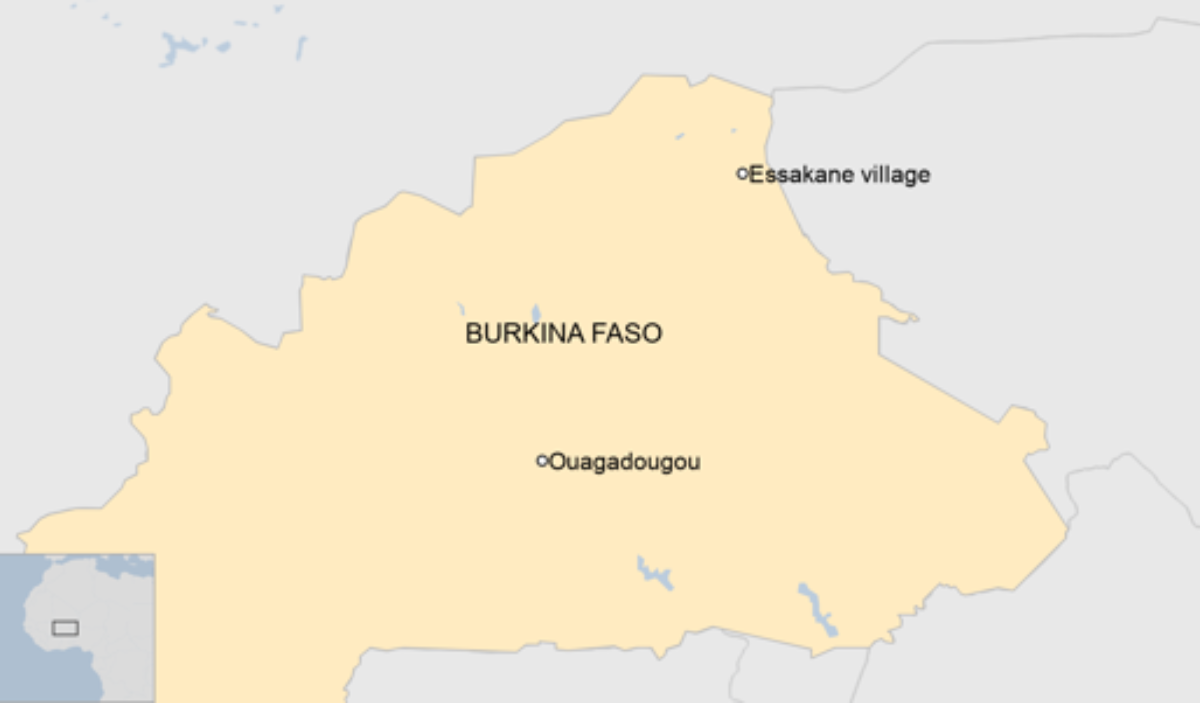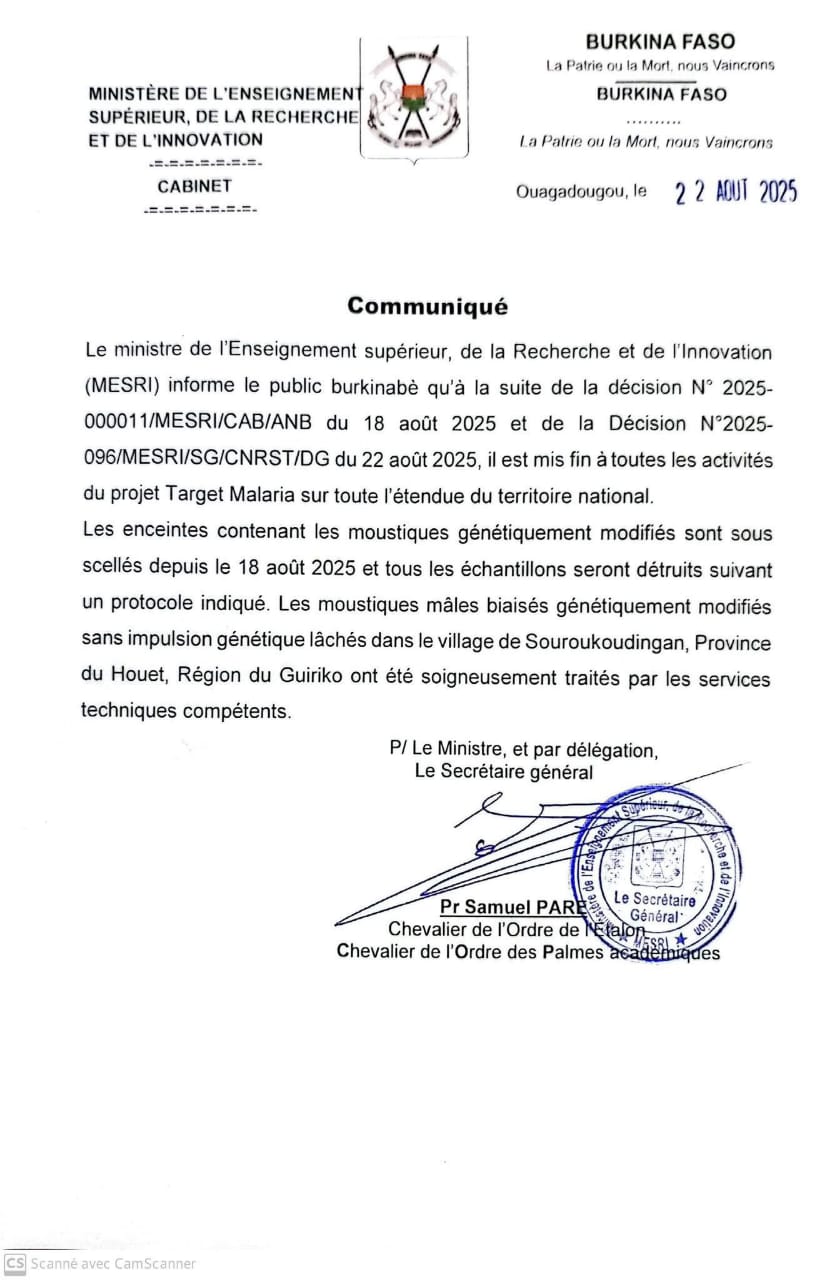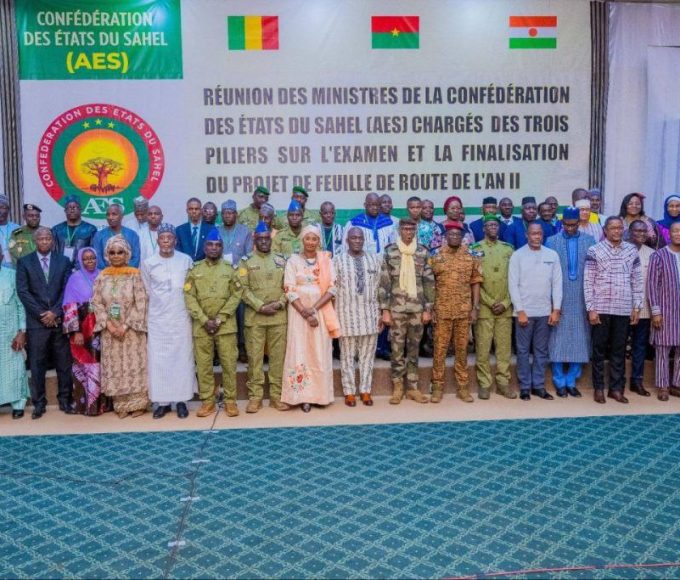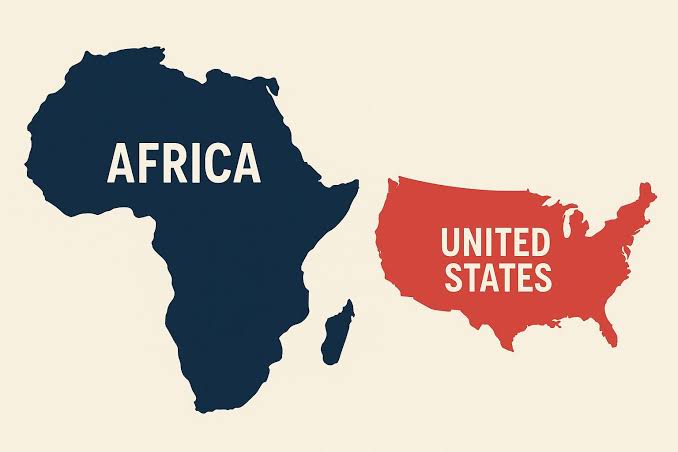
Burkina Faso Bans Gates-Backed GM Mosquito Experiments, Samples To Be Destroyed Nationwide

Burkina Faso has announced a nationwide end to the activities of Target Malaria, the research consortium funded by the Bill & Melinda Gates Foundation and Open Philanthropy. The decision effectively halts all experimentation with genetically modified (GM) mosquitoes in the country.
In a statement released on Friday, August 22, the Minister of Higher Education, Research and Innovation revealed that the enclosures containing genetically modified mosquitoes were sealed on August 18. The statement added that “all samples will be destroyed according to an indicated protocol.”

The announcement follows Target Malaria’s second experimental release of 75,000 sterile male GM mosquitoes on August 11 in the village of Souroukoudingan, Karangasso Sambla department, Houet province, and Guiriko region. According to the consortium, the operation aimed to “develop new methods of malaria control” and “strengthen the technical and operational capacity of the research team in managing this type of study.”
The release was conducted in collaboration with the Health Sciences Research Institute/Institute for Research in Health Sciences (IRSS) and supported by the Gates Foundation. Target Malaria said the trial was intended to evaluate the effectiveness of genetically modified mosquitoes as a potential malaria-control tool, in addition to existing measures such as insecticide-treated nets, insecticides, medicines, and vaccines.
This phase built on a smaller trial in July 2019, when 10,000 non-gene drive sterile male mosquitoes, imported as eggs from Italy, were released in Bana, district 7 of Bobo-Dioulasso. In its 2019 “Mark-Release-Capture” report, Target Malaria stated that “at the end of our research programme, if gene drive technology proves reliable, safe, effective, and sustainable, and if it is approved by national regulatory authorities, local communities, and other potentially impacted stakeholders, it will be provided for use in malaria-affected countries through an open access agreement.”
Before this year’s release, the group said it had secured the necessary authorisations, including a “favourable opinion on environmental and social feasibility” from the National Assessment Agency (ANEVE), as well as approvals from the National Biosafety Agency (ANB), the Ethics Committee for Health Research, and the Institutional Ethics Committee of the IRSS.
Despite these regulatory clearances, civil society groups strongly opposed the experiment. The Coalition for Monitoring Biotechnology Activities in Burkina Faso (CVAB) urged authorities to suspend the release and convene expert dialogue, warning that proven alternatives, such as safe and effective anti-malaria drugs, should be prioritised. CVAB member Aly Tapsoba described gene-drive technology as “a poorly understood technology,” stressing that “science has not yet accumulated sufficient experimental data on the inheritance of gene-drives” and warned of potential environmental and health risks.
Critics also pointed to possible conflicts of interest. Burkina Faso’s Health and Public Hygiene Minister, Robert Lucien Kargougou, serves on the board of the Global Alliance for Vaccines and Immunisation (GAVI), a public-private partnership strongly backed by the Gates Foundation and influential in shaping global vaccine markets.
Earlier risk assessments highlighted uncertainties about the approach. In 2014, the Foundation for the National Institutes of Health (FNIH), a Target Malaria funder, commissioned the Commonwealth Scientific and Industrial Research Organisation (CSIRO) to examine the risks of releasing the transgenic male-sterile strain. CSIRO concluded that if sterility persisted when GM mosquitoes bred with wild populations, the modified strain would eventually die out, serving as a controlled step toward malaria eradication. However, if sterility failed, engineered DNA could persist in wild populations, raising unresolved questions about unintended environmental and health consequences.
With the government’s decision, Burkina Faso has become the first country to formally shut down Target Malaria’s activities nationwide, reflecting growing scepticism over the safety, ethics, and necessity of gene-drive mosquito experiments.
Read More:
- Nigeria’s NIMC Behind Over 3M DDoS Attack On FIJ, Violating Cybercrimes Act
- Nigeria Lost ₦826bn In Gas, 15,400 GWh of Electricity, And ₦472bn In Flaring Fines Between January and May 2025
About The Author
Mayowa Durosinmi
author
M. Durosinmi is a West Africa Weekly investigative reporter covering Politics, Human Rights, Health, and Security in West Africa and the Sahel Region
Mayowa Durosinmi
M. Durosinmi is a West Africa Weekly investigative reporter covering Politics, Human Rights, Health, and Security in West Africa and the Sahel Region
2 Comments
Leave a Reply Cancel reply
Related Articles
Malian Prime Minister Presents 2025 Government Report, Pledges Stability and Reform
Mali’s Prime Minister, Major General Abdoulaye Maïga, has presented the government’s 2025...
ByWest Africa WeeklyMarch 2, 2026AES Ministers Conclude Roadmap Talks in Ouagadougou, Strengthen Security Coordination
Ministers of the Confederation of Sahel States have concluded high level discussions...
ByWest Africa WeeklyMarch 2, 2026Investigation Links Western Funding Networks and NGOs to African Conflict, Terror Financing, and Organised Crime
A transcontinental investigation has exposed an alleged web of Western-funded organisations and...
ByWest Africa WeeklyMarch 2, 2026Tinubu Approves Additional Endless Federal Road Projects While Old Projects Crawl at Snail’s Pace
President Bola Tinubu has approved a fresh round of federal road projects,...
ByWest Africa WeeklyMarch 2, 2026












Also…
Since seizing power in 2022, Captain Ibrahim Traoré’s administration has increasingly sought to limit foreign involvement in domestic policy, particularly projects tied to high-profile Western philanthropists such as Bill Gates.
Quoted from “Chinedu Okafor in “Business Insider Africa”
Thank God for Traore!